Renmin University of China - Singapore Management University Global Forum
2024-01-12 IMIOn November 21, 2023, the “Renmin University of China - Singapore Management University Global Forum” was successfully held in Beijing. The theme of the forum was “Green Finance and Governance: From Commitments to Actions.” The event was co-hosted by Renmin University of China and Singapore Management University, with the School of Finance, Renmin University of China (SFRUC), China Financial Policy Research Center (CFPRC) and the International Monetary Institute (IMI) as the co-organizers.
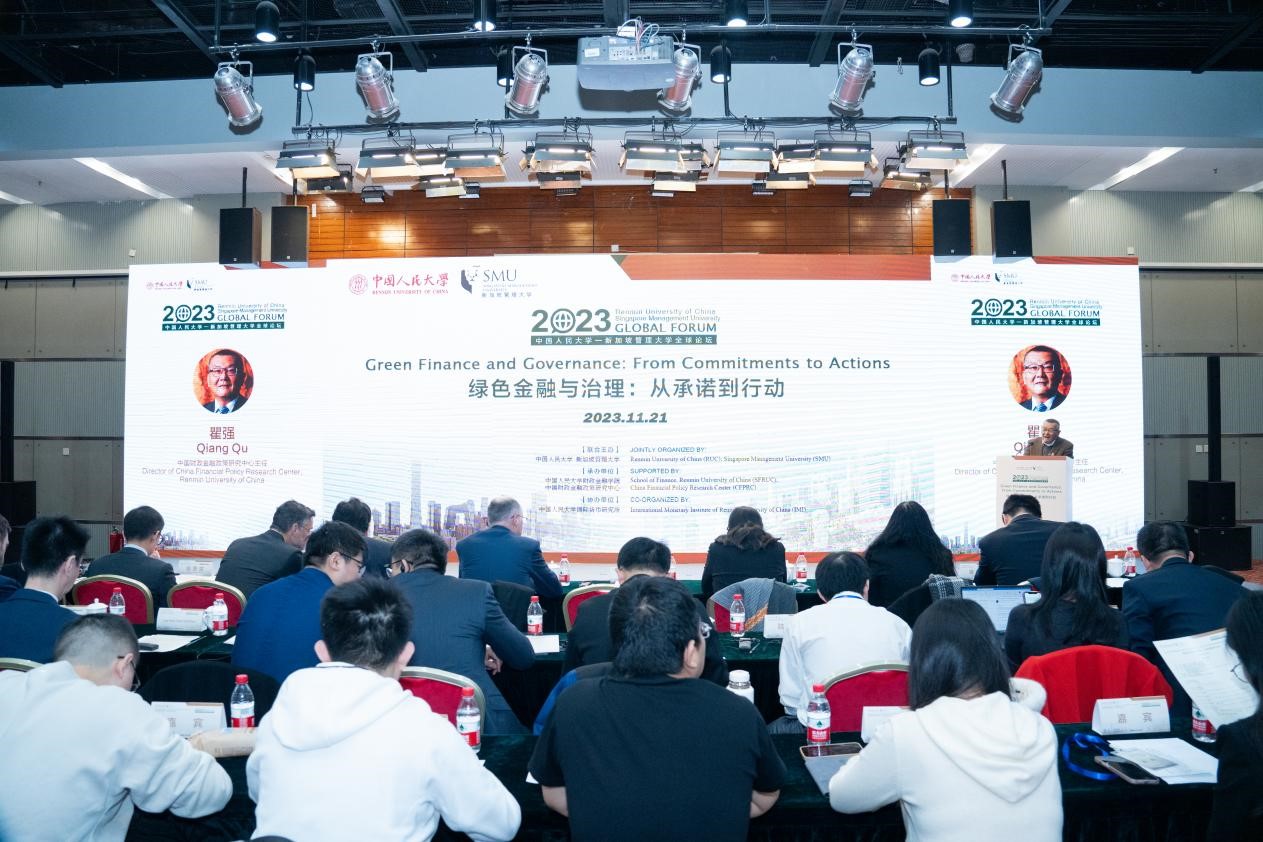
Ye Kangtao, Vice President of RUC, and Timothy Clark, the Provost of SMU, delivered speeches on behalf of the organizers. The conference was chaired by Qu Qiang, the Director of the China Financial Policy Research Center.
Ye Kangtao emphasized that the theme of this forum covers the comprehensive elements of green finance planning, practice, and sustainable development throughout the entire cycle. Promoting the healthy development of green finance is of great significance for achieving harmonious coexistence between humans and nature and effectively transforming environmental preservation into economic prosperity. Renmin University of China has leveraged its unique strengths in the field of humanities and social sciences through long-term educational practices, accumulating profound interdisciplinary knowledge, and laying a solid foundation for research and education in green finance.
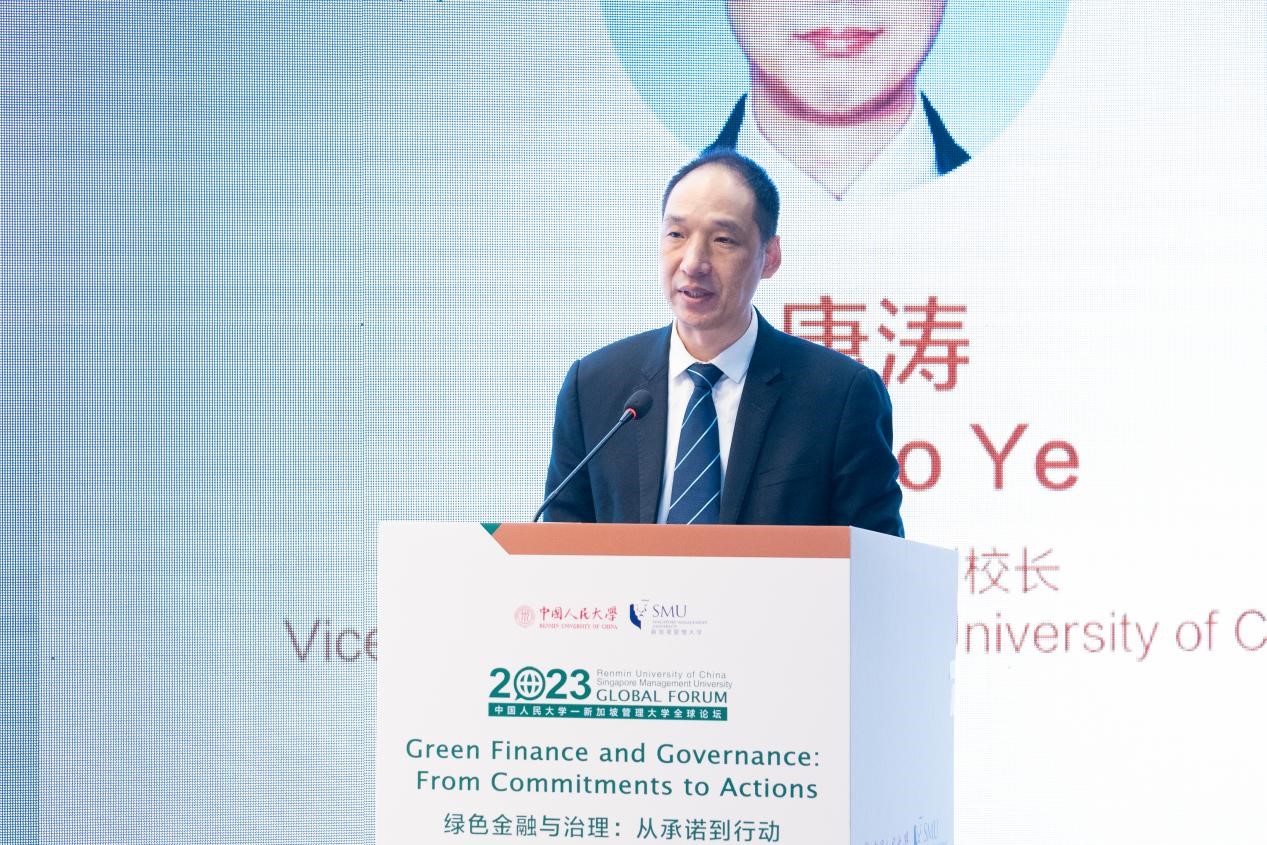
Timothy Clark highlighted that Singapore Management University is committed to addressing societal challenges through interdisciplinary collaboration and partnerships with various sectors. The university aims to provide solutions for different topics such as digital transformation and sustainable development. The theme of this forum, 'Green Finance and Governance: From Commitments to Actions,' calls for a rethinking of traditional academic research paradigms.
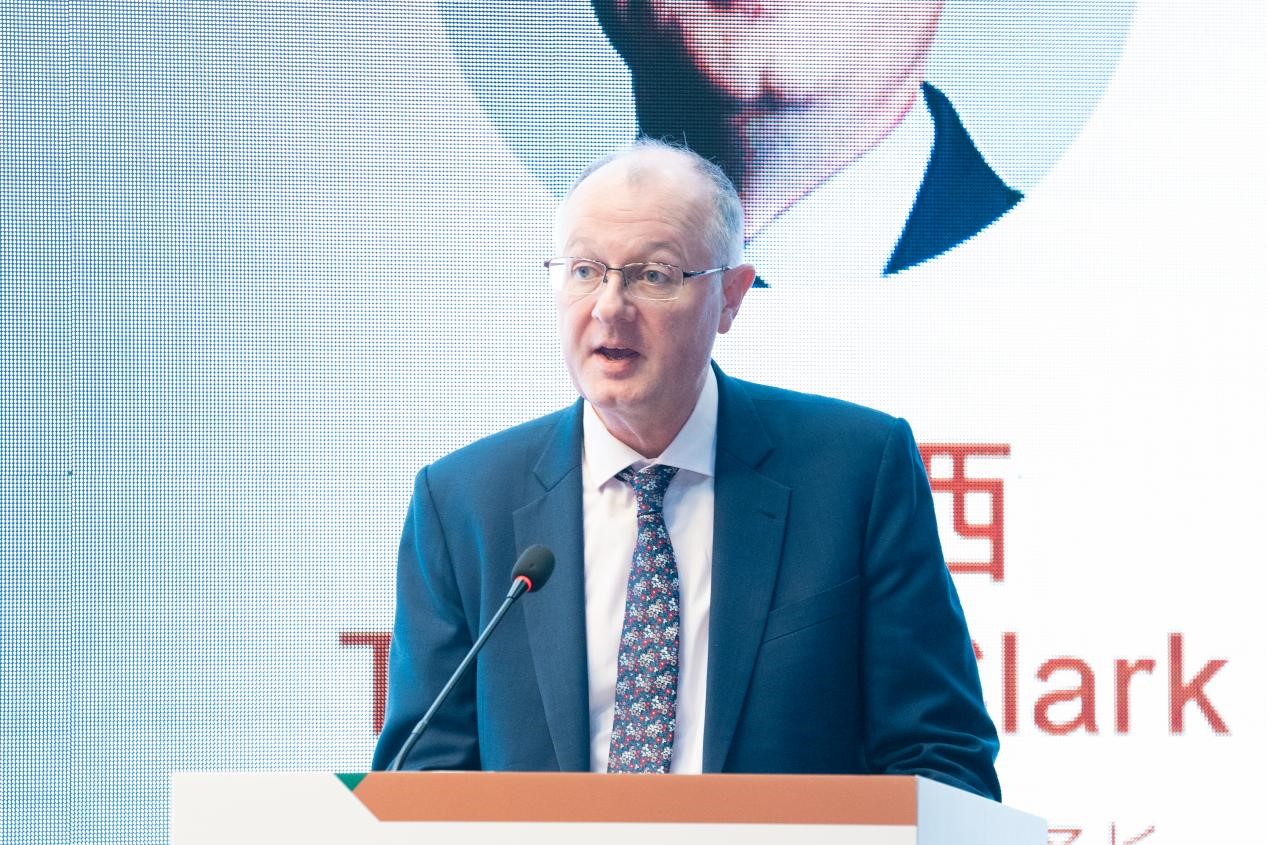
Lan Hong, Associate Director of the Ecological Finance Research Center of RUC and Professor of Environment and Natural Resources School, Lian Hao, Associate Professor of SMU Lee Kong Chian School of Business (LKCSB), Ho Bee Professorship in Sustainability Management and Co-Director of Singapore Green Finance Centre, Joris Dierckx, Head of Corporate and Institutional Banking for Southeast Asia and CEO of Singapore Branch at BNP Paribas ,and Jang Ping Thia, Lead Economist and Manager, Economics Department, Asian Infrastructure Investment Bank (AIIB) offered their keynote speeches.
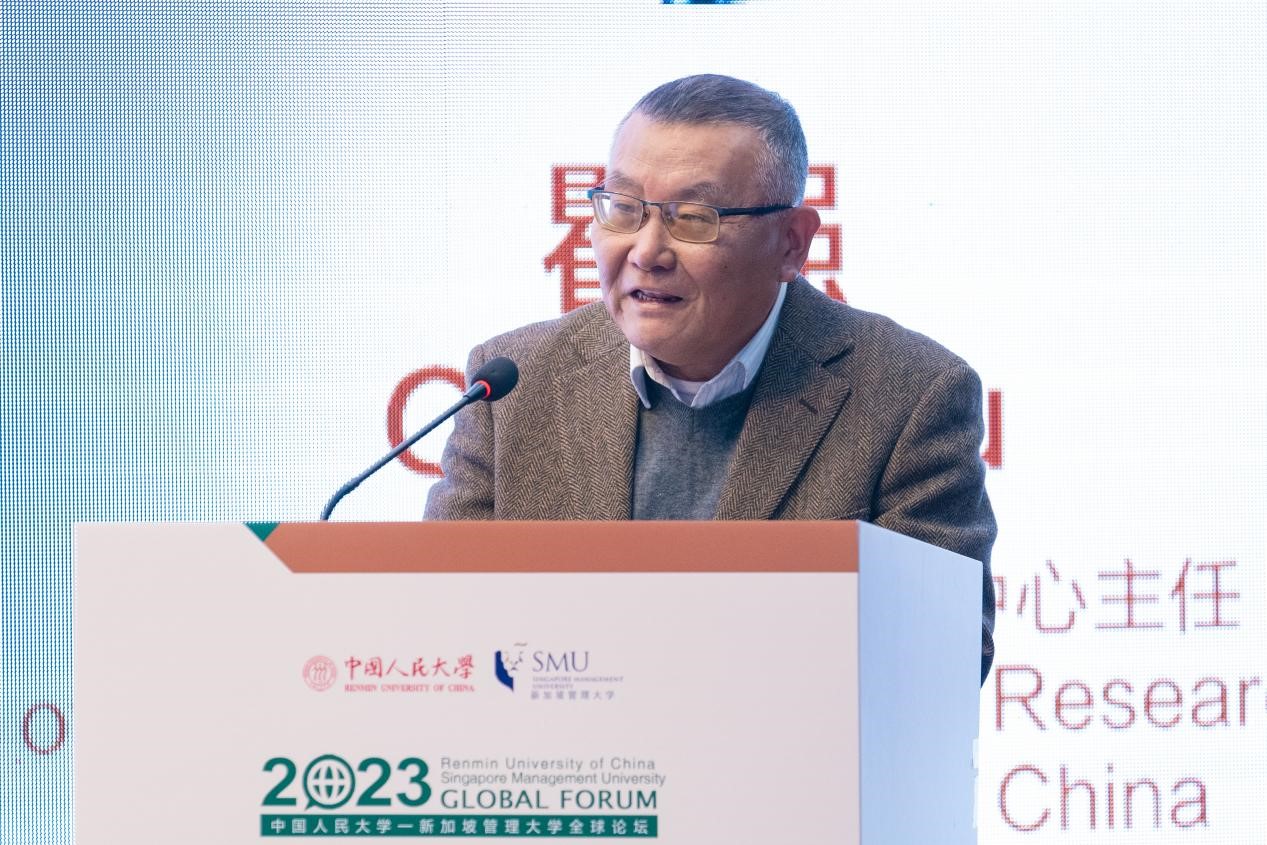
Lan Hong delivered a speech titled 'Green Finance and Global Ecological Crisis Governance.' She emphasized that the most crucial task in global ecological governance is addressing the climate crisis and biodiversity crisis, and green finance serves as an essential tool for global ecological governance. The increasing occurrence of extreme weather events worldwide highlights the urgency of global carbon neutrality actions, and China's green finance policies and actions are playing a significant role in this regard. In terms of green finance policies, the central bank has not only incorporated green finance indicators into the bank evaluation system and implemented a separate approval system for green finance bonds but also strengthened the application of refinancing tools in green finance. Additionally, the central bank has conducted open market operations through the Medium-Term Lending Facility (MLF) and introduced a groundbreaking structural monetary policy tool, the Carbon Emission Reduction Support Tool, specifically designed for climate crisis governance.
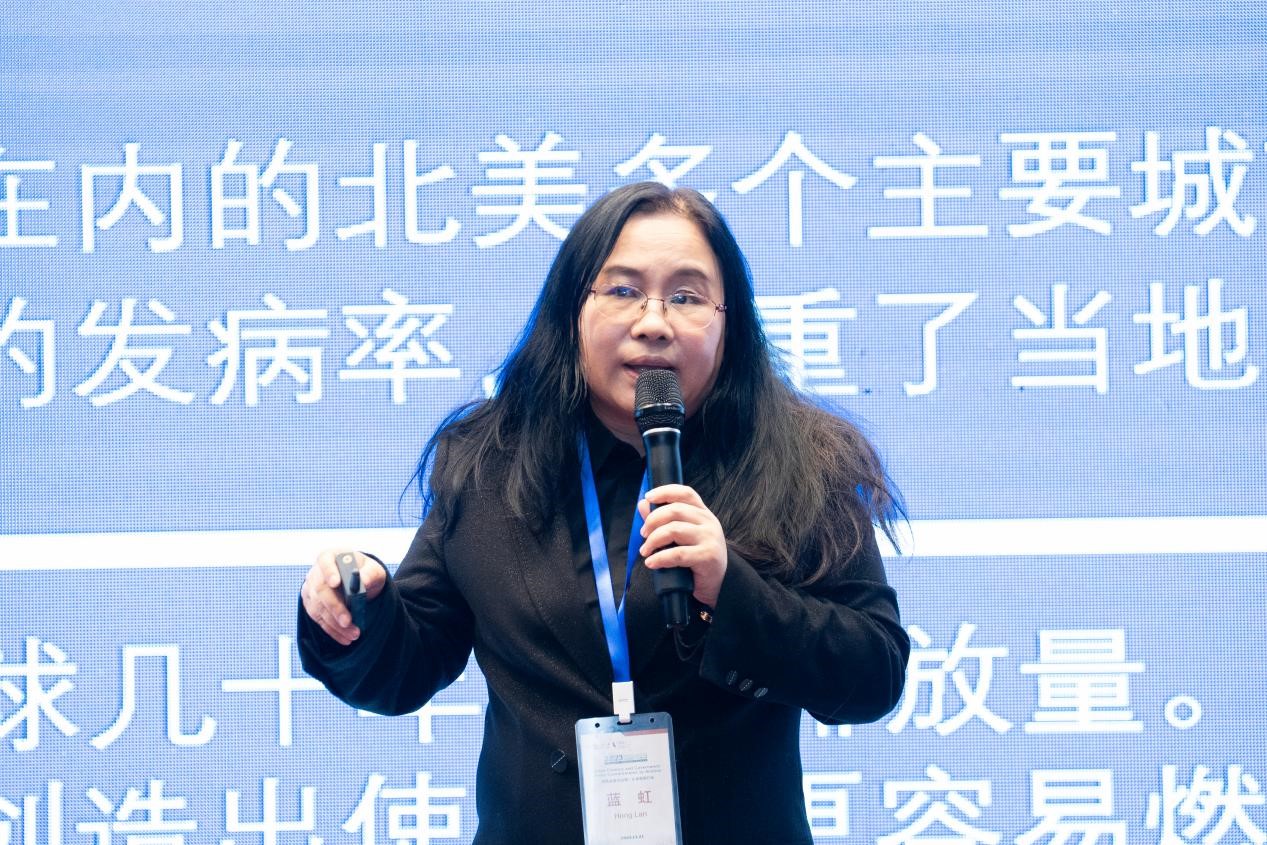
Liang Hao, Associate Professor of SMU Lee Kong Chian School of Business (LKCSB), delivered a speech titled “Green Finance: Opportunities and Risks Coexist.” He mentioned the flaws and risks in the traditional logic of green finance and emphasized the need for active transformation in finance to provide more effective and inclusive financial support, encouraging greater participation of economic entities in low-carbon transition. The traditional approach of green finance involves providing funds to green enterprises while restricting financing for brown enterprises, which may result in a decrease in energy efficiency for brown enterprises and, paradoxically, exacerbate carbon emissions. Therefore, there is a need to employ transformative finance to establish and implement low-carbon transition goals and plans for brown enterprises, improving energy efficiency and reducing carbon emissions.
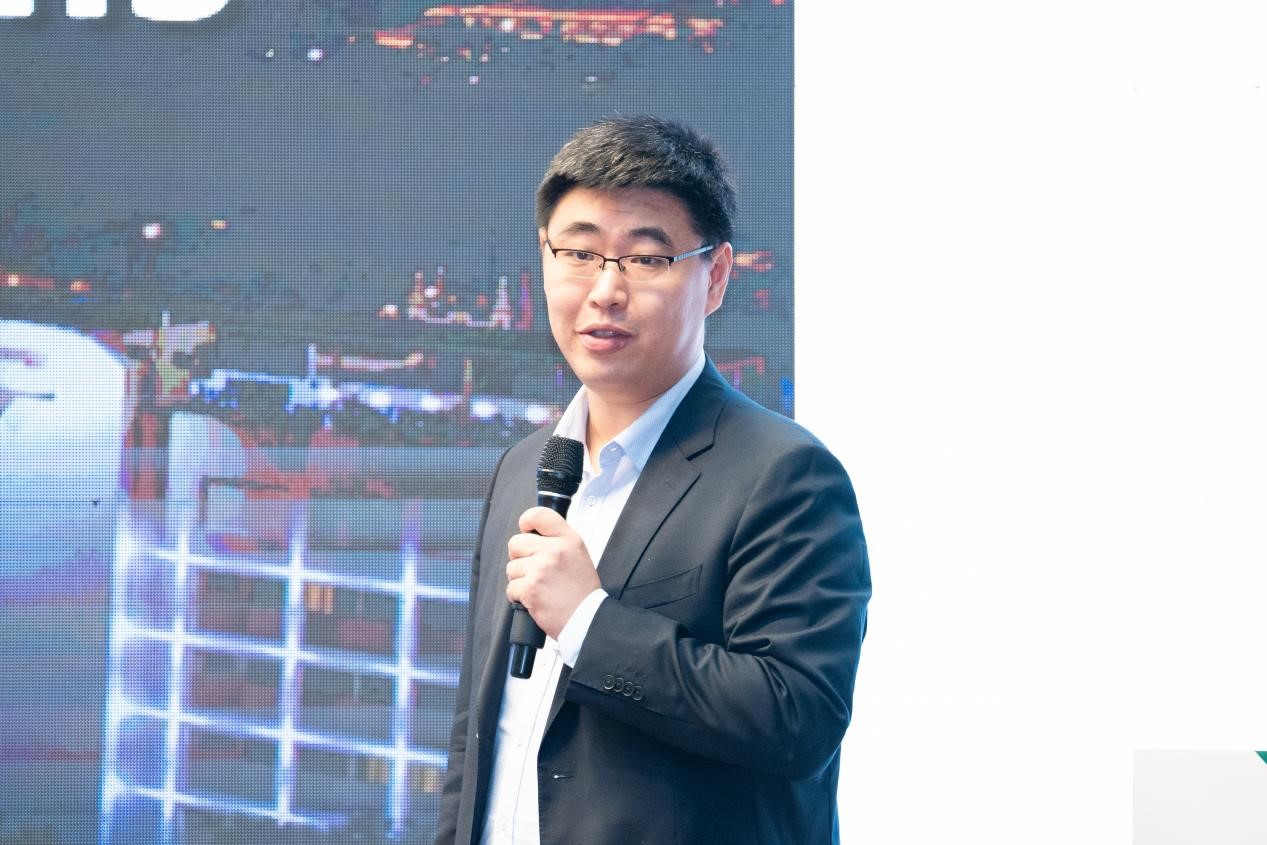
Joris Dierckx, Head of Corporate and Institutional Banking for Southeast Asia and CEO of Singapore Branch at BNP Paribas, delivered a speech titled “Green Finance and Governance: From Commitment to Action.” He discussed global green finance and governance from four aspects. Firstly, he pointed out that the pace of ESG regulatory development varies globally, and in the coming years, EU ESG regulations will increasingly be integrated into the corporate development framework. Secondly, he introduced the strategic initiatives implemented by BNP Paribas in 2023 to serve the low-carbon economic transition. Thirdly, he discussed the specific measures taken by BNP Paribas in the implementation of relevant strategies. Finally, he mentioned that the EU Green Bond Standard provides a voluntary set of standards for issuers to enhance investor transparency and reduce the risk of “greenwashing.”
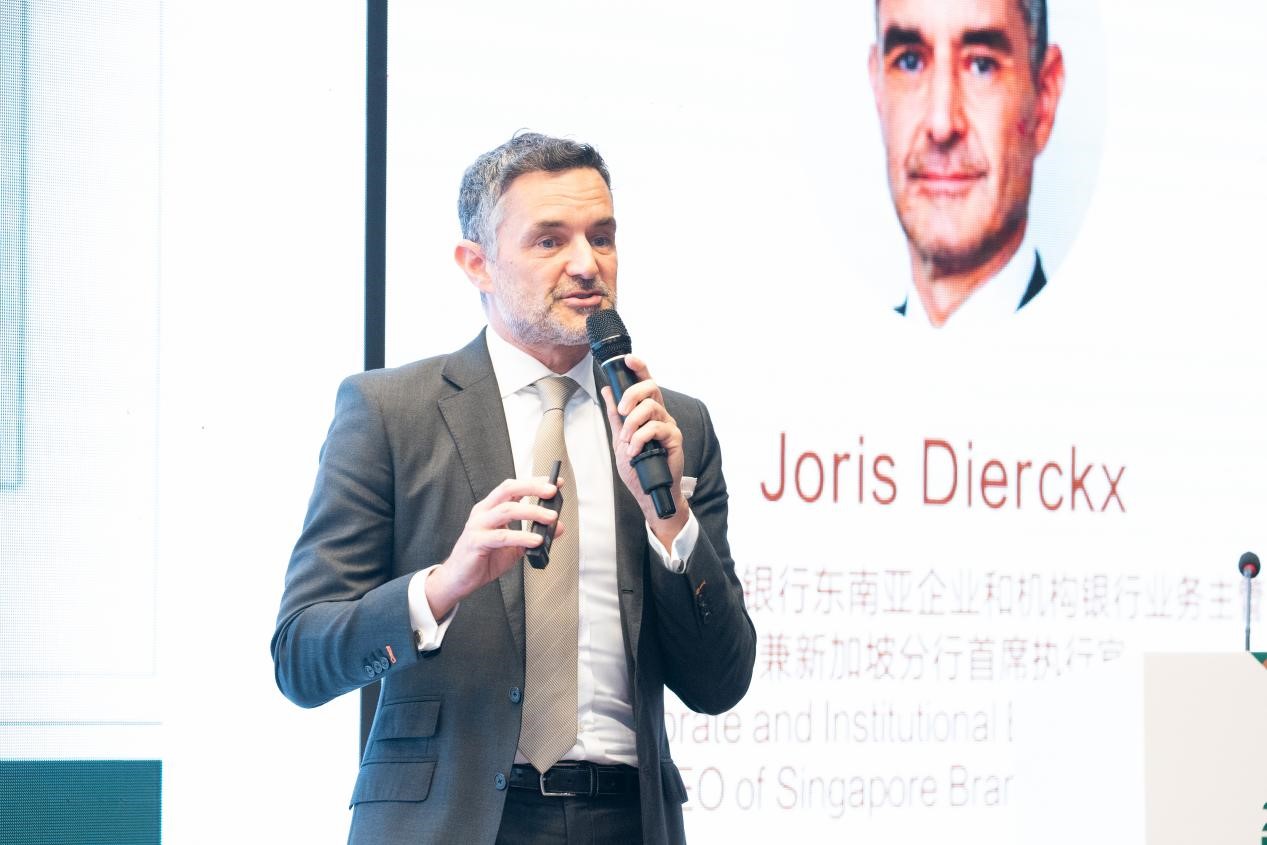
Jang Ping Thia, Lead Economist and Manager, Economics Department, Asian Infrastructure Investment Bank (AIIB), delivered a speech titled “Commitment and Governance of Green Finance.” He discussed the importance of transforming governance and policies in achieving net-zero emissions and promoting green finance from four perspectives. First, Jang Ping Thia pointed out that although governments around the world have made commitments to achieving net-zero emissions, the pace of implementation is still insufficient. Reforms in national institutions and capacity-building are necessary to facilitate greater participation of private enterprises and investors. Secondly, achieving net-zero emissions requires the combination of carbon pricing and a range of policy measures, as carbon pricing can provide favorable economic conditions for other intervention measures. Thirdly, state-owned enterprises and state-owned financial institutions, including national development banks, sovereign wealth funds, central banks, etc., need to undergo more transformations. Lastly, in suitable conditions, the market plays a role in redistribution and innovation, while governance approaches may vary depending on the context.
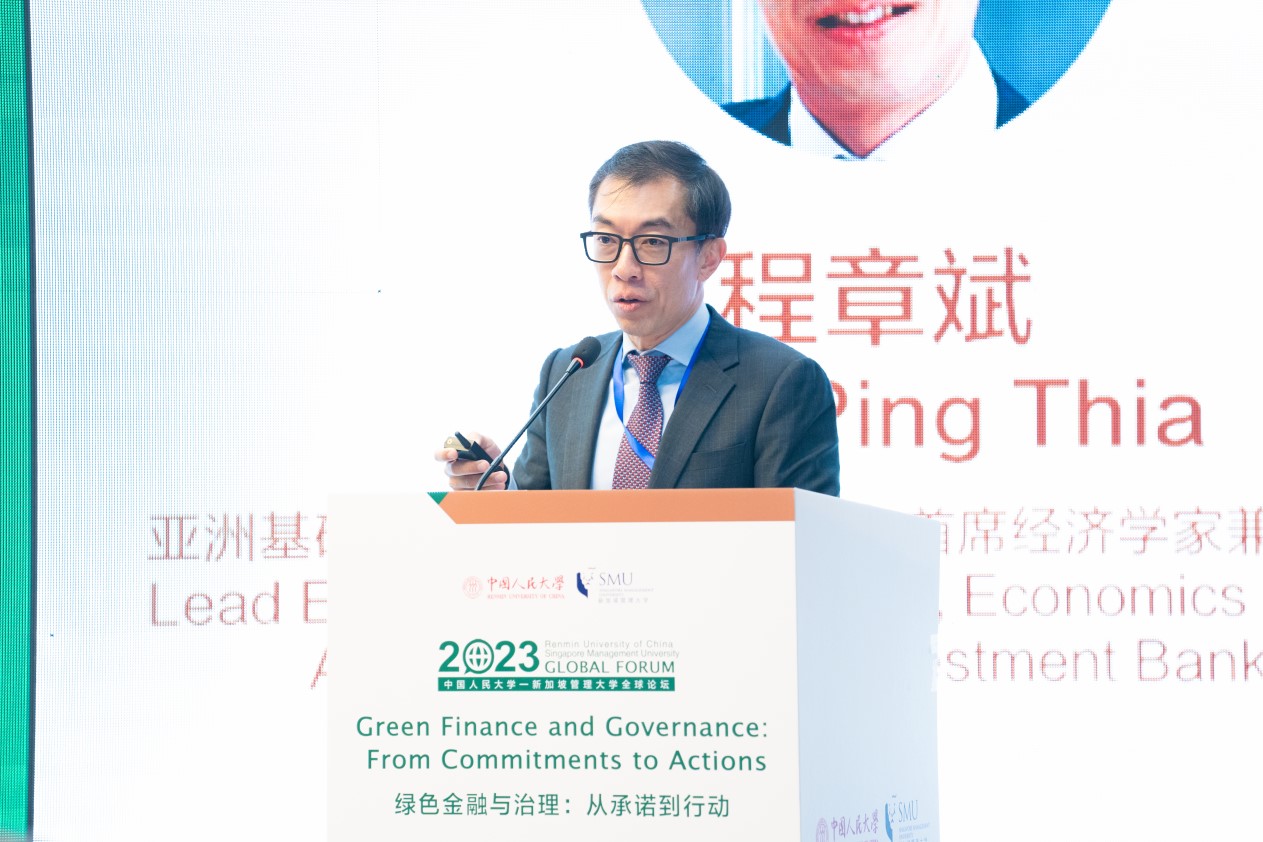
The roundtable discussion was moderated by Qian Zongxin, Professor and Associate Dean of SFRUC. Participants included Jang Ping Thia, Lead Economist and Manager, Economics Department, Asian Infrastructure Investment Bank (AIIB);He Qing, Vice Dean and Professor at the National Academy of Financial Research, Renmin University of China; Gao Haoyu, Professor; Lu Liping, Associate Professor, both from the School of Finance and Public Administration, Renmin University of China; Peng Yuchao, Vice Dean of the School of Finance, Central University of Finance and Economics; and Simon J.D. Schillebeeckx, Assistant Professor of Strategy and Innovation of SMU LKCSB, Co-founder and Director of the Global Mangrove Trust and GREEEN. They engaged in a lively discussion on the topic“How to Better Coordinate ESG with Other Government Objectives in the Future.”
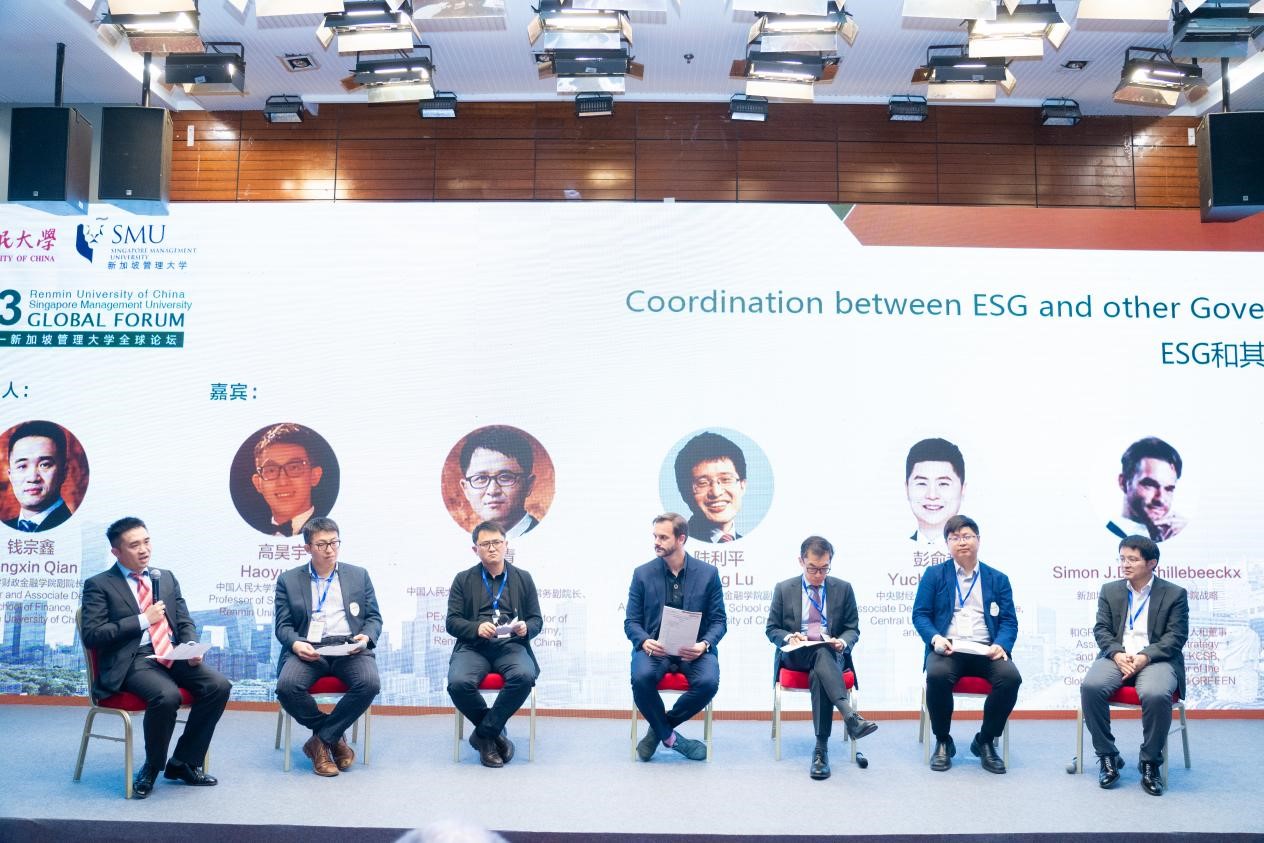
Translated by Zhou Yulong
